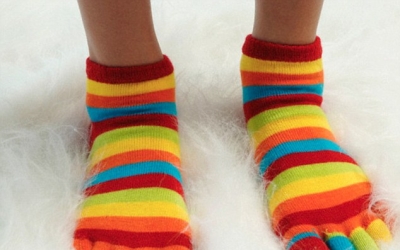- Latest news▼
-
13:11, May 8 Nature Medicine: Alzheimer's risk reaches 95% in elderly with 2 copies of APOE4 gene, study finds

-
10:39, May 8 The Telegraph: AstraZeneca withdrawing Covid vaccine amid lawsuit

-
22:36, May 7 Woman left in 17-day coma ‘burning from the inside out’ after taking ibuprofen for period pain

-
18:44, May 7 Car interior materials emit harmful substances suspected to cause cancer - study

-
16:47, May 7 Daily Mail: eating nuts and seeds can reduce risk of cancer and heart disease

-
14:52, May 7 Red, highly processed meat increases risk of cancer, experts say

-
08:38, May 7 Human brain is getting bigger, scientists believe this could help reduce risk of dementia

-
16:38, May 6 Daily Mail: decaf coffee is high in fibre

-
15:26, May 6 Ministry of Health of Armenia: Laboratory-confirmed measles cases increased by 27 compared to the previous week

-
14:41, May 6 MedicalXpress: Diabetes drug lowers COVID-19 viral load 4-fold, study finds

-
08:27, May 6 Researchers determine how physical activity affects women's health in middle age

-
18:15, May 4 What role does diet plays in the treatment of bipolar disorder?

-
10:52, May 4 Scientists identified dangerous health effects for families with gas cookers in their homes

-
12:36, May 3 Smoking during pregnancy may lead to obese children, study finds

-
10:29, May 3 Scientists discover cell responsible for repairing damaged liver tissue

All materials
Wear thick socks to prevent colds and flu

It's that time of year when there's nothing more comforting than some woolly socks or a nice pair of slippers. And new research shows they could also ward off colds and flu, as having chilly feet increases the risk of catching viruses.
Dr Ron Eccles, director of Cardiff University's Common Cold Centre, has been studying the issue for more than 25 years and has carried out a review of the medical literature on the topic.
Many people carry the bugs which cause colds and flu in their nose already, without it causing symptoms that make them ill, he told MailOnline. But if the temperature of their feet drops, it causes a change in the whole body which leads to their nose becoming cold, he explained.
This increases the likelihood of a full-blown cold developing.
‘Chilling the feet causes the blood vessels in the nose to constrict,' he explained.
‘It’s a protective reflex action which slows down the loss of heat from the body, to try to keep you warm. Your skin goes white, the inside of your nose and throat goes white and blood flow to the nose is reduced. The white cells that fight infection are found in the blood, so then there are fewer white cells to fight the virus.’
Being cold also slows down the movement of the cilia - hairs in the nose that filter dirt and germs - allowing the virus to get into the body, he added.
‘If you can’t afford to catch a cold - for example if you’ve got an illness like bronchitis - you should keep your nose warm in winter, wear warm shoes and don’t let your feet get wet,’ Dr Eccles said.
Recently, U.S. researchers found the germ that commonly causes a cold found it easier to breed at 33°C (91°F) – the sort of temperature typically found inside a cold nose – than at the 37°C (99°F) found deep inside the body.
But crucially, they also found that the body’s initial immune response to the cold does not work as well at 33°C, the same temperature as the nose, meaning the virus was allowed to wreak havoc.
Making the whole body cold, known medically as hypothermia, also led to a reduced immune response if it was cooled to below 1°C (34°F), but it was unclear whether this was because chilling the body led to the nose becoming cold.
Chilling the mouth through eating or drinking cold substances did not increase the risk of catching a virus.
‘So you can happily eat ice cream in winter,’ Dr Eccles added.
Follow NEWS.am Medicine on Facebook and Twitter
- Video
- Event calendar
- Archive
- Most read
month
week
day
- Sixth Armenian International Ophthalmological Conference will be held on 17-19 May 1523
- NBR: low to moderate intensity exercise protects against depression 1384
- ВJN: High-fat foods may increase the risk of heart attack and stroke at a young age 1299
- Armenia joins Council of Europe convention on protection of patients' rights 1277
- Scientists discover cell responsible for repairing damaged liver tissue 1257
- Smoking during pregnancy may lead to obese children, study finds 1254
- Patterns: Neural network created that models outcome of various patient therapy methods 1218
- Scientists identified dangerous health effects for families with gas cookers in their homes 1152
- What role does diet plays in the treatment of bipolar disorder? 1050
- MedicalXpress: Diabetes drug lowers COVID-19 viral load 4-fold, study finds 804
- Researchers determine how physical activity affects women's health in middle age 627
- Daily Mail: decaf coffee is high in fibre 609
- Ministry of Health of Armenia: Laboratory-confirmed measles cases increased by 27 compared to the previous week 594
- Red, highly processed meat increases risk of cancer, experts say 457
- Human brain is getting bigger, scientists believe this could help reduce risk of dementia 412
- Find us on Facebook
- Poll





